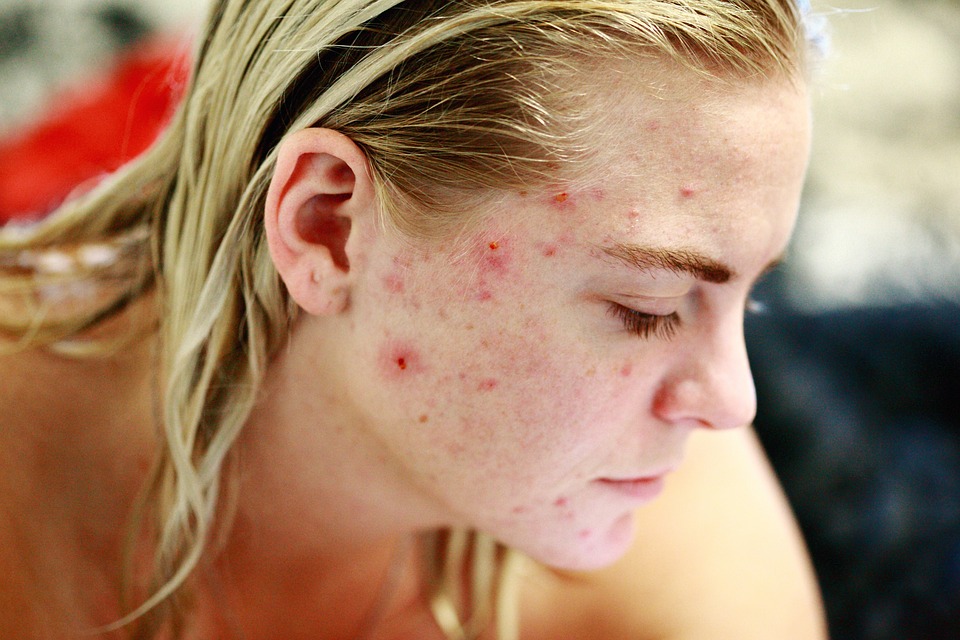10 Essential Skincare Tips for Controlling Oil Production in Oily Skin
Introduction
Oily skin can be a challenge to deal with, as it often leads to a shiny complexion, clogged pores, and frequent breakouts. However, with the right skincare routine and proper techniques, you can effectively control oil production and maintain a healthy, balanced complexion. In this article, we will discuss ten essential skincare tips for those with oily skin.
1. Use a Gentle Cleanser
Cleansing is a crucial step in any skincare routine, especially for oily skin. Look for a gentle cleanser specifically formulated for oily or acne-prone skin. Avoid harsh or drying cleansers as they can strip away the natural oils, leading to increased oil production.
2. Exfoliate Regularly
Exfoliating helps remove dead skin cells and unclog pores, which is particularly important for those with oily skin. Choose a gentle exfoliator with ingredients like salicylic acid or glycolic acid to help remove excess oil and prevent breakouts. However, be careful not to over-exfoliate, as it can irritate the skin and trigger more oil production.
3. Use Oil-Free and Non-Comedogenic Products
When selecting skincare and makeup products, opt for oil-free and non-comedogenic formulas. These products are specifically designed to minimize clogged pores and prevent excess oil production. Look for labels that indicate “oil-free” or “non-comedogenic” to ensure they won’t exacerbate oily skin.
4. Don’t Skip Moisturizing
Contrary to popular belief, even oily skin needs moisturizing. Skipping this step can actually trigger increased oil production as your skin tries to compensate for the lack of moisture. Choose lightweight, oil-free moisturizers that are hydrating but won’t clog your pores.
5. Use Oil-Absorbing Sheets
If you find yourself getting shiny throughout the day, keep oil-absorbing sheets in your purse or bag. These handy sheets can quickly remove excess oil from your skin without disturbing your makeup. Gently blot your face with the sheet to control shine without adding any additional product.
6. Avoid Heavy and Greasy Makeup
Thick, heavy, and greasy makeup can exacerbate oily skin and clog pores. Opt for lightweight, oil-free, and water-based makeup products that won’t add extra oil to your skin. Look for foundations and powders that are specifically labeled as “matte” or “oil-free.”
7. Regularly Clean Your Makeup Brushes
Makeup brushes can accumulate bacteria, oil, and old makeup, which can cause breakouts or irritate the skin. Clean your brushes regularly to prevent these issues and keep your skin in good condition. Use a mild shampoo or brush cleanser to thoroughly clean your brushes and let them air-dry completely before using them again.
8. Consider Using a Clay Mask
Clay masks are excellent for absorbing excess oil and impurities from the skin. Applying a clay mask once or twice a week can help control oil production and deep clean your pores. Look for masks containing ingredients like kaolin, bentonite, or charcoal to draw out impurities without stripping your skin.
9. Manage Stress Levels
Stress can trigger hormonal changes in the body, leading to increased oil production and breakouts. Incorporate stress management techniques like meditation, yoga, or regular exercise into your routine to help keep stress levels in check and your skin healthy.
10. Protect Your Skin from the Sun
Even though oily skin may seem less prone to sun damage, it is crucial to protect your skin from harmful UV rays. Use a lightweight, oil-free, and broad-spectrum sunscreen with at least SPF 30 daily, even on cloudy days. This not only prevents sunburn but also protects your skin from premature aging and potential damage caused by the sun.
FAQs
Q: Can excess oil production be stopped completely?
A: While it’s impossible to completely stop oil production in the skin, using the right skincare routine and following these tips can help control and manage it effectively.
Q: How often should I exfoliate oily skin?
A: Oily skin should be exfoliated around two to three times a week. However, it’s important not to over-exfoliate, as this can irritate the skin and lead to more oil production.
Q: Can oily skin benefit from using a moisturizer?
A: Yes, oily skin needs moisturizing too. Using a lightweight, oil-free moisturizer helps maintain the skin’s hydration levels and prevents excessive oil production.
Q: Are there any dietary changes that can help with oily skin?
A: While there is no specific diet that eliminates oily skin, eating a balanced diet rich in fruits, vegetables, and whole grains can contribute to overall skin health. Avoiding excessive consumption of processed foods and sugary snacks may also help reduce oil production.
Q: Should I avoid using oils in my skincare routine if I have oily skin?
A: While certain oils can exacerbate oily skin, other types of oils can actually help balance oil production. Lightweight and non-comedogenic oils like jojoba oil or tea tree oil can be beneficial. However, it’s important to patch test and find the right oils for your skin to avoid clogged pores.
Q: Can oily skin benefit from using a face mist?
A: Face mists can provide refreshing hydration and temporarily reduce shine on oily skin. Look for mists containing ingredients like witch hazel or rosewater, which can help control oil production and minimize pore size.
Conclusion
Controlling oil production in oily skin requires a consistent skincare routine and the right products. By following these essential skincare tips, you can effectively manage oil production, minimize breakouts, and maintain a healthy, balanced complexion. Remember, each person’s skin is unique, so it may take some trial and error to find the best techniques and products that work for you. Consult with a dermatologist if you have persistent skin concerns or need personalized recommendations.


